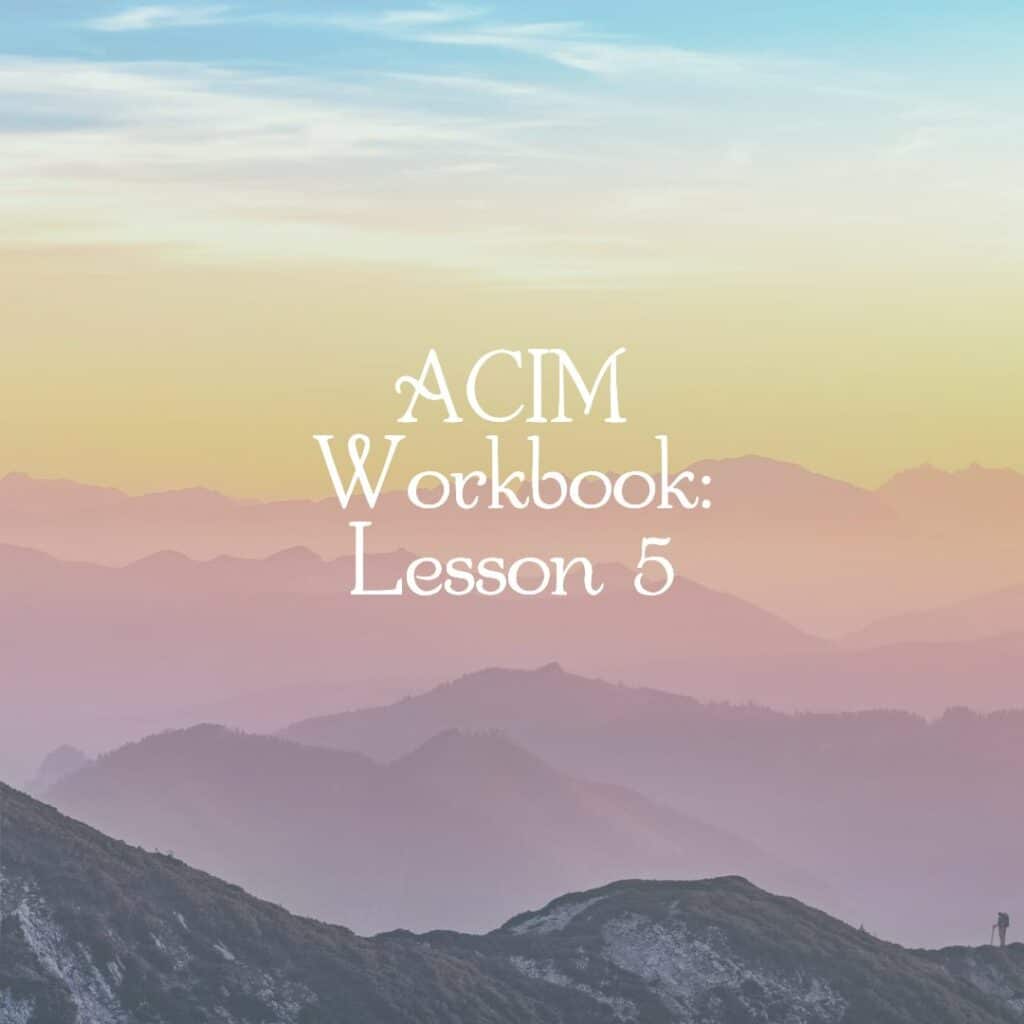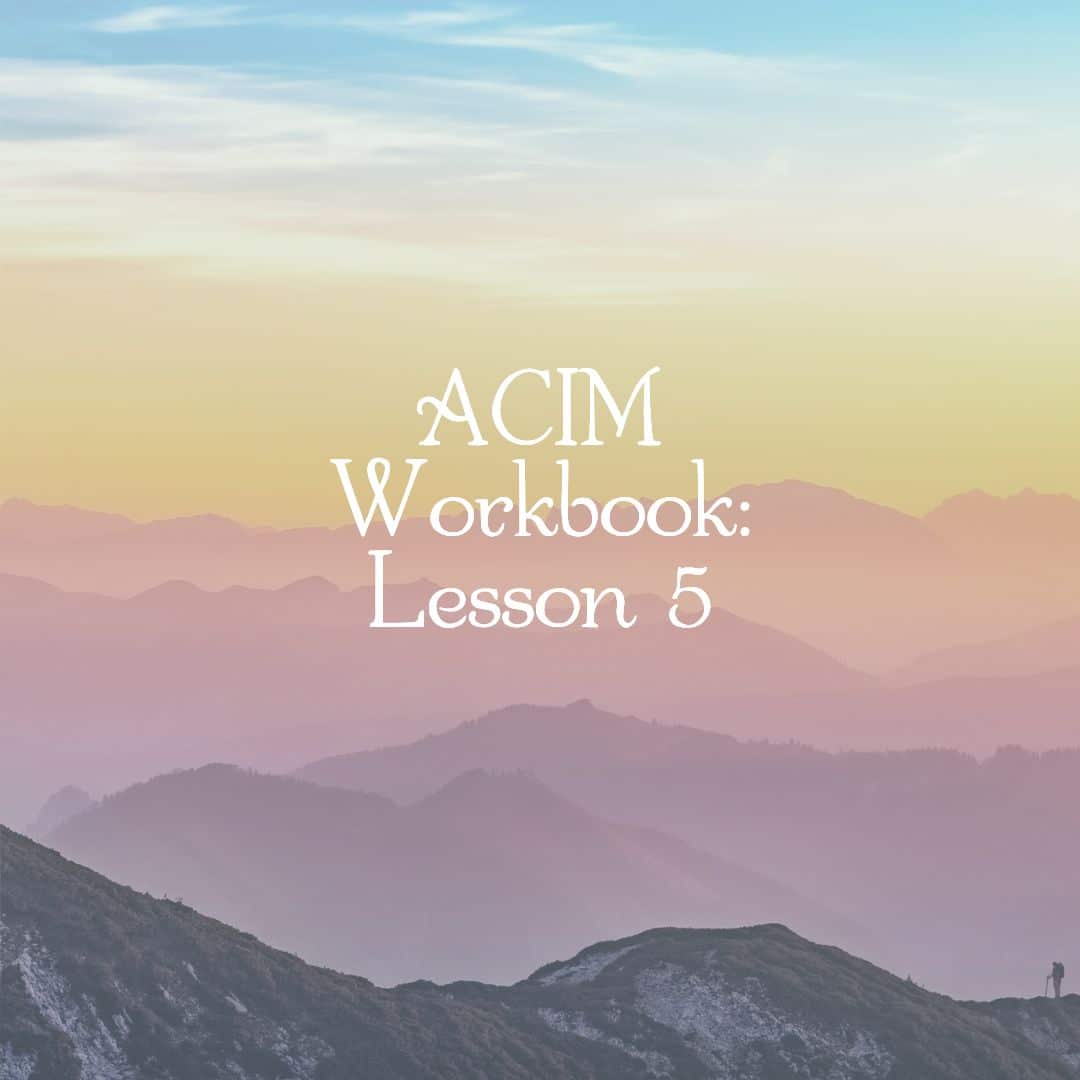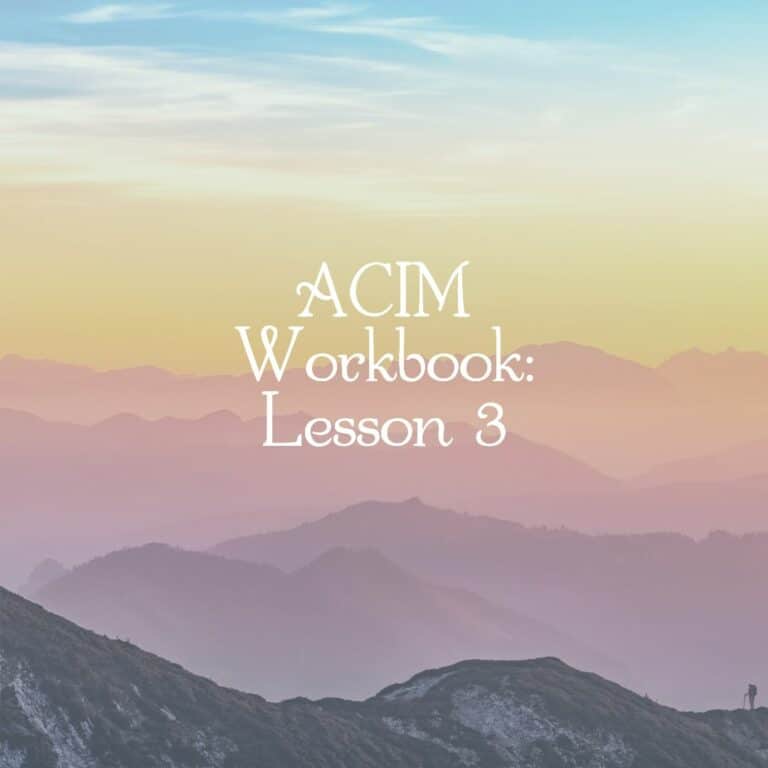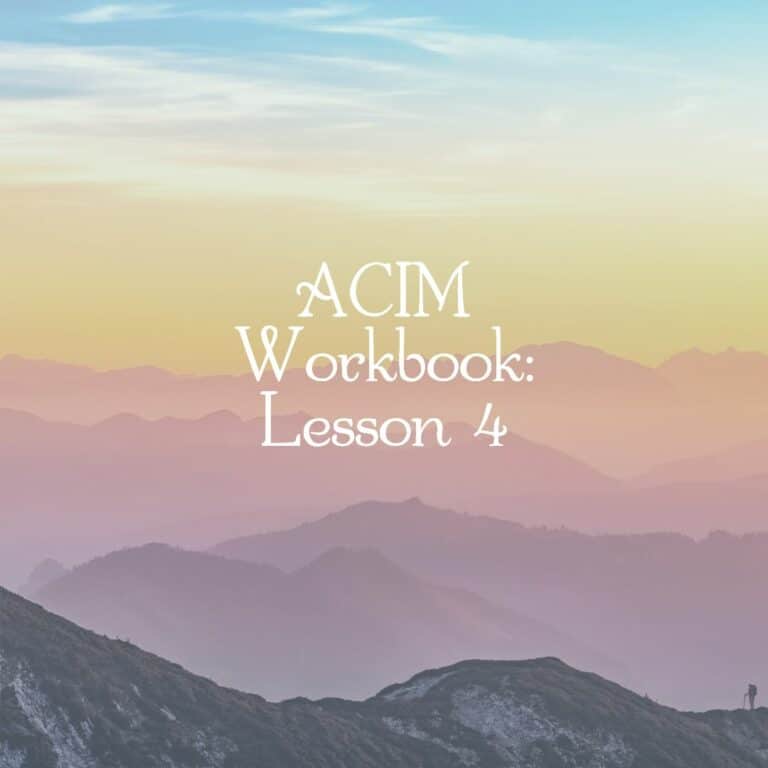
This lesson and commentary is part of a complete class on A Course in Miracles offered here at The Joy Within. Signup for the full class here, or view all ACIM workbook lessons.
Lesson 5: Idea for the Day
I am never upset for the reason I think.
Guided Audio Narration
embedded audio file
Insights and Commentary

In yesterday’s lesson, we saw that one aim of the course is to shift your awareness from the external to the internal nature of the world. Nowhere is this shift more prevalent than in the recognition of our own negativity, and the real causes of it.
As we move through our world, we have a tendency to believe that things happen to us. We think that, though we may choose how we respond and react to life (and thus influence our circumstances) there are many things outside of our control.
When these external forces unfold as we think they should, we are in a good mood. When they don’t, we’re in a bad mood. In either case, we view the external condition as the cause of our individual happiness or unhappiness. We misidentify the origin of our mood and, in the process, often absolve ourselves of the responsibility for it.
Today’s lesson teaches us to accept that we do not know the true cause of our upset. At this point in the course, do not worry about finding the real cause. The first step is one of humility. You must first realize that you do not know what you think you know.
Maybe you think you are upset because of a situation that happened to you. Maybe you think you are upset because of something another person said to you. Maybe you think you are upset because you could have acted differently or because you expect more from yourself.
You are wrong. You do not know why you are upset.
To do this exercise, state both the emotion you feel and the cause you believe originated it. For example:
- I am not worried about money for the reason I think.
- I am not afraid of losing my partner for the reason I think.
- I am not angry at the government for the reason I think.
As you state each association, move slowly. Pause after each perceived cause and effect, and allow a few moments for the phrase to sink in. You are not upset for the reason you think.
Like with the previous exercises, some ideas may be easier than others. It is important to recognize, however, that there is inherently no difference among them. All negative emotions are, ultimately, the same. In any moment, you either are peaceful, or you are not. You either feel love, or you do not.
This is what is meant by the statement: “There is no order of difficulty in miracles.”
It means that though there may seem to be degrees of frustration or anger, worry or despair, no one emotion is any “larger” or “more challenging” than another.
The choice is binary. You feel love or fear, peace or anguish. True peace is always total.
Thus, as you proceed through this exercise, it may help to reiterate this sameness. As you deal with emotions that seem hard to overcome, repeat: “There are no small upsets. They are all equally disturbing to my peace of mind.”
There is no difference between frustration, worry, anger, sadness, depression, or fear. So long as you continue to experience one, the others will remain close by. Thus, you may also wish to remind yourself: “I cannot keep this form of upset and let the others go. For the purposes of these exercises, then, I will regard them all as the same.”




